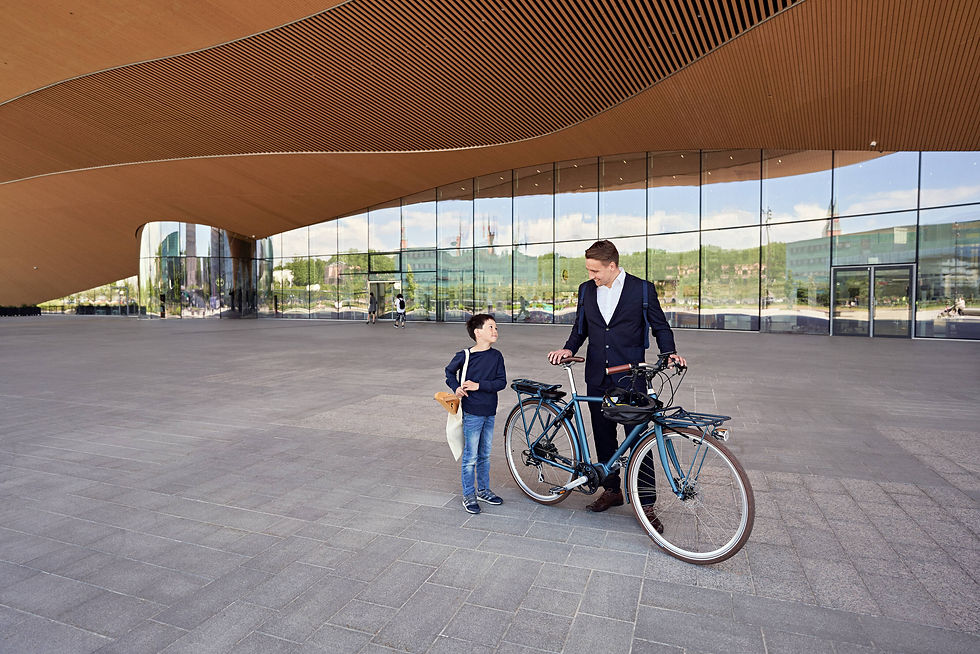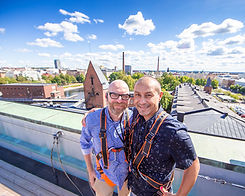
Credit: Visit Finland/Mikko Tormanen
Society
Finland has been named the World’s happiest country for the sixth year in a row, in an annual UN-sponsored index, The World Happiness Report. As well as a personal sense of wellbeing, based on Gallup polls in each country, the happiness score takes account of GDP, social support, personal freedom and levels of corruption.
Finland is known for its well-functioning public services, social support, widespread trust in authority and low levels of crime and inequality - and these are the things that make Finns happy. The whole 'happiness thing' has been a bit perplexing for Finns, though, as we would describe ourselves as quiet and prone to melancholy, and admittedly eye public displays of joyfulness with suspicion. But this report does not measure the width of your smile but instead records how secure and content you feel in your life.
Let us know if there is a particular topic you are interested in and we'll make sure that your itinerary will include opportunities to learn more about that aspect of the Finnish society.

Climate Change
Finland aims to be climate neutral in 2035 and the world's first fossil-free welfare society. Our country is highly committed to global Sustainable Development Goals (SDGs) and has been ranked number one in an international comparison of sustainable development in 2021 and 2022.
“Sustainable development is about safeguarding people’s wellbeing within the limits of our planet’s carrying capacity. Finland’s strength lies in our long-term investments to ensure people’s wellbeing and equality. A key challenge for Finland is how to maintain this high level of wellbeing within the limits of our planet.” Sami Pirkkala, Secretary-General of the Finnish National Commission on Sustainable Development
Credit: Visit Finland/Miikka Niemi

Education
Education is one of the cornerstones of the Finnish welfare society. Finns pride themselves on an educational system that offers equal opportunities for education for all. Education from pre-primary to higher education is free of charge in Finland. Finnish teachers are highly educated and strongly committed to their work.
fine by nature has teamed up with a highly esteemed education organisation in Finland offering study tours for principals, teachers, school staff and students of education. There are set date tours or we can customise a tour to suit your group's specific needs.
Credit: Visit Finland/Elina Manninen
Equality
Finland strives to be an egalitarian society where everyone is considered equal regardless of their background, appearance, sexuality or gender.
To get people talking about equality, Finland established a 'Hän Award' that is presented to individuals and organisations advancing inclusivity. 'Hän' is a Finnish personal pronoun that refers to a third person - a “he,” “she,” or any other gender.
In 1906, Finland became the first country in the world to grant full political rights to women – they gained the right to vote (a first in Europe) and also the right to run for election. Finnish people have considered gender equality a guiding principle ever since. In the European Gender Equality Index, Finland ranks 4th.
Credit: Visit Finland/Laura Vanzo

Media
Media literacy forms an integral part of civics education in Finnish schools. Finnish students study famous propaganda campaigns in history, learn about advertising and see how statistics can be used to mislead people. They learn the difference between disinformation (someone distributing false information knowing that it is false) and misinformation (someone distributing false information without realising that it is false).
Studies show that people in Finland trust their news media, which is some of the freest in the world.
Credit: Helsinki Times

Parenting
Every Finnish mother-to-be receives a maternity package. The package contains clothes and other accessories for the baby, packed inside a cardboard box that is designed to be the first bed for the little one.
Parental leave of almost 14 months is divided equally between the partners (except for several weeks of pregnancy leave for the birth mother just before the due date). Adoptive families and multi-parent families also receive the same total amount of leave to share among the parents. Children in all families can benefit in equal measure from time spent with the adults who are closest to them.
Credit: Visit Finland/Kari Ylitalo

State
Finland is a parliamentary republic with a head of government - the prime minister - and a head of state - the president. The central government is based in Helsinki and the local governments in the 309 municipalities (towns and cities). The country is divided into 19 regions and 70 sub-regions. The smallest region, Åland, is an autonomous archipelago in the south-west. The northern Lappi region comprises the Sámi Domicile Area, home to around half of Finland’s indigenous Sámi people.
In accordance with the Constitution of Finland, sovereignty belongs to the people, and that power is vested in the Parliament. The Parliament consists of 200 members, 199 of whom are elected every four years from 13 multi-member districts electing 7 to 36 members using the proportional D'Hondt method.
Finland is a member of the European Union (EU) and has also recently joined NATO (North Atlantic Treaty Organization).
Credit: Visit Finland/Ville Varumo



%20%20green%20on%20white%20(2).png)